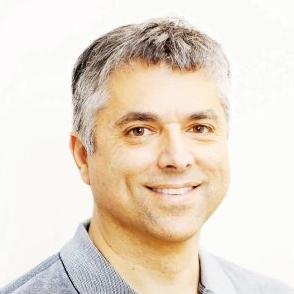News
Truth is necessary for reconciliation in Lithuania
At the turn of the 20th century, about half of Vilnius’s population was Jewish. All that remains of Jewish life there is a tourist trail, and monuments lauding Holocaust perpetrators.

GRANT GOCHIN
To divorce Lithuania from its Holocaust-related past, and to create a national-foundation narrative, Lithuania devised a government agency named the Genocide Center, whose mission is to rewrite the history of Lithuania. Through this sanitisation process, it converts perpetrators into national heroes, and wherever possible, denies Lithuania’s culpability in the Holocaust.
There is virtually no recourse against the Genocide Center. Its holocaust revisionism has been aggressive and blatant for years. Continuous appeals for the truth have been met with contempt and continuous intimidation by the government, which is then validated by the Lithuanian legal system. The Lithuanian foreign ministry has cynically marketed Lithuania as friendly towards Jews.
The Soviet occupation of Lithuania has been identified as a genocide, while the genocide of the Jews in the country has been all but ignored. Lithuania admits the murders occurred, but will not identify the Lithuanians that participated in – or led – to the slaughters. It blames everything on Soviets and Nazis and a few “local collaborators”. Culpability by Lithuanians is effectively reduced to an occasional platitude, illustrating Holocaust distortion at its finest.
Revising history to elevate murderers to heroes is an assault on the victims and all humanity. Because of this, the memory of the murdered has been all but eliminated from the Lithuanian consciousness. Marketing occasional platitudes about memory, while distorting the truth, supplants historical accuracy. As time progresses, this vulgar Lithuanian narrative has been repeated so frequently, unsuspecting Lithuanians believe it to be the truth.
In 2015, the mayor of Vilnius removed Soviet art statues, and addressed the suffering of Lithuanians under Russian rule. However, he strongly declined to address monuments honouring the murderers of Jews. For this reason, I started a campaign to address the national honouring of Holocaust perpetrators.
Each government department disclaimed responsibility, and ultimately, all roads referred back to the very locus of Holocaust deception, the Genocide Center. Academic studies are continually rejected for absurd reasons, leaving the judicial system the only recourse. Unfortunately, Lithuanian courts often obey ideological instructions on how to rule rather than adjudicating on the truth, and so distortions are effectively endorsed. The court of public opinion becomes the last resort.
In 2018, Silvia Foti, the granddaughter of Jonas Noreika (a nationally recognised hero) publicly and heroically stepped forward to describe the holocaust crimes of her grandfather. She said that she had approached the Lithuanian government to tell the truth. For this crime, Foti was repudiated by segments of the Lithuanian community, in America and in Lithuania. Additionally, she was vilified by the Lithuanian government.
The combination of a campaign for truth about the holocaust by the granddaughter of a perpetrator, and simultaneously the descendant of his victims, was electrifying, and draw significant international media attention. No longer could the government stand so resolutely against the truth, and the Lithuanian façade began to crumble.
In the Lithuanian presidential election of 2019, Gitanas Nausėda campaigned to address judicial corruption. We could see that a new wind was blowing. Within the first two weeks of his presidency, corrupt judges have been dismissed, and the street in Vilnius named for an architect of the Lithuanian Holocaust – Kazys Skirpa – is to be renamed. On 27 July, the monument in Vilnius for Noreika was removed.
Changing a street sign and removing a monument is the first breakthrough to truth telling. As a nation, Lithuania is to be applauded. The majority of Lithuanians are fine people. It’s not an easy process for any nation to admit that some of their founding fathers were murderers and criminals, especially when they have been fed a contradictory narrative. In order for a nation to mature, truth about its past is a necessary step.
Under new leadership, Lithuania finally has the opportunity to walk a fresh path. The government needs to tell the truth. It needs to revoke certificates of good conduct awarded to Holocaust perpetrators, and renounce their national honours. It needs to replace the leadership of the Genocide Center, and appoint new leaders who will commit to telling the truth. They will need to tell the population that they were deliberately misinformed, and in the words of the Lithuanian foreign minister, “come clean”.
South Africans are aware that reconciliation must be based on truth. Then, and only then, can Jews and Lithuanians walk together towards a better future.
- South African-born Grant Gochin is actively involved in Jewish affairs, focusing on historical justice. He has spent the past twenty years documenting and restoring signs of Jewish life in Lithuania. In March 2019, he took the Lithuanian government to court to get them to recognise their active role in the Holocaust.